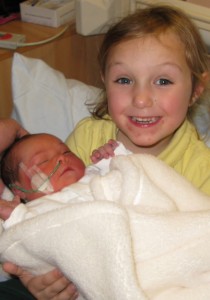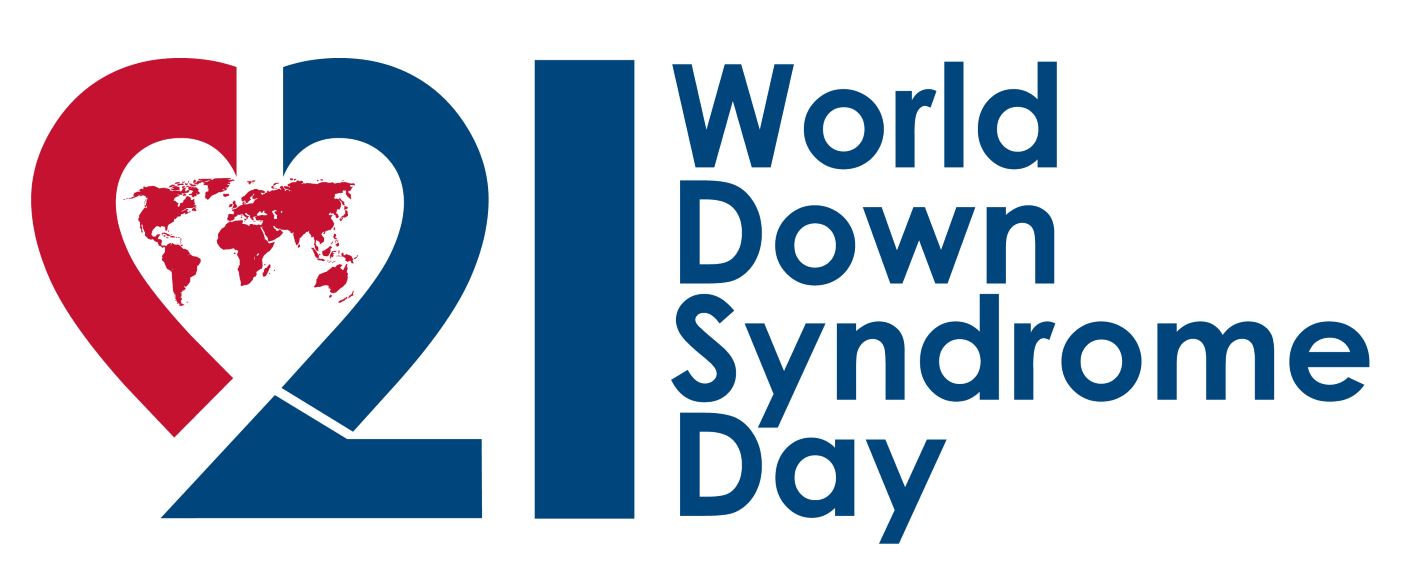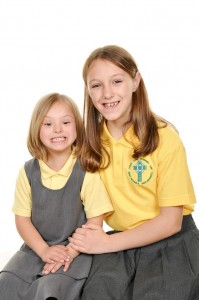21st March 2016
On World Down Syndrome Day (21 March), we thank a mum, who has a 6 year old daughter with Down Syndrome, for sharing her experience with us and providing useful information on how best to support a parent of a child with Down Syndrome (DS).
March 21st – or 03/21 – is World Down Syndrome Day. It’s no coincidence that today was picked to raise awareness. The date representing there being 3 copies of the 21st chromosome – trisomy 21.
We knew there was a high chance that our daughter would be born with an additional chromosome when we were given a 1:39 chance from our 16-week blood screening. We chose not to have further testing as it wouldn’t matter to us if the baby had Down Syndrome or not.
 When Lauren was born the staff were all happy and friendly and spoke to us about our daughter in a positive and professional manner. However, no one had any information to pass to us until a young recently-qualified midwife came on shift and was able to give us some direct family experience.
When Lauren was born the staff were all happy and friendly and spoke to us about our daughter in a positive and professional manner. However, no one had any information to pass to us until a young recently-qualified midwife came on shift and was able to give us some direct family experience.
We went home after a week in hospital and soon after our health visitor, who we knew from our eldest child, came to see us. She was positive in her outlook but honest with us that she “would be learning with us”.
Our health visitor would repeatedly talk about “Down’s this” and “Down’s that”. We didn’t see her very often as we had a lot of other appointments to attend but would often come home to a note through the door saying she had called around. Later on we were told, “I never come to see you much as I know you are very busy”. Busy yes, but it would have been proactive and thoughtful if she could have rung to arrange a convenient appointment to come and see us. Even if we did get to chat about holidays; just normal parent stuff – as she is a really lovely chatty person. We felt that assumptions were made, rather than questions asked – this isn’t helpful.
One of the last times we saw her was after repeatedly asking about the 2 year check. Her response was: “I’ve not done it because Down’s don’t score very well”. We knew where(abouts) Lauren would score as we spend every day with her. But applying for a Statement of SEN (for full-time school nursery aged 3) needed supportive evidence of her delays.
Speaking to other parents about their experiences we found we weren’t alone with the difficulties we faced, but we happily also found some lovely examples of good practice:
“When you’ve got a baby with a diagnosis, you want to feel nurtured and around understanding professionals – not people who are clearly more shocked than you are and don’t know how to cope.”
KH, Midlands
“Our health visitor has been amazing. She’s so supportive and seems to know more about DS than some of the docs and nurses we’ve seen. She was brilliant with the weaning worries and insists she visits more often than she should because she wants to make sure E isn’t missing out on any help or support that she may need, even though we have portage etc. for that. I know she’s always on the other end of the phone if I have any concerns too.”
JC, Wales
“My HV was great. She was newly qualified and about the same age as me. We were on a learning curve together as neither of us had previous experience of DS. She never used unprofessional language and if neither of us knew the answer to something she promised to find out, which she did.”
JT, Midlands
And some learning experiences:
“[following a complaint] when B was around 10 months old, the head of the community health visitor team contacted me to a) let me know they were going to give me a different HV and b) to come and see me so I could help her draw up a pathway document for the HVs to follow when they are assigned a baby with DS so they know what to do (DS insert etc.) and can provide details of local support groups. I was impressed that they took on board my complaint and responded so well.”
LB, North West
How can a health visitor best support a parent of a child with Down Syndrome?
- Be honest. You don’t need to be knowledgeable but be truthful in what you do know and do make an effort to look out information at an early stage to inform yourself and the parents if needed. If parents don’t get the information from health professionals, then parents will Google. Please don’t let new parents Google.
- The internet and social media has a wealth of good information and support. There are some excellent blogs and websites to follow and reassure parents that their child will get there.
- The Down’s Syndrome Association has many leaflets and info sheets about DS not just for new parents but their families and health care professionals
- Use person-first language. Our daughter is not “Down’s” or “Down’s Syndrome”, she is Lauren and she has Down Syndrome. Lose the Label.
- The Down Syndrome Medical Interest Group, DSMIG, provides a specific insert for the Red Book that includes Down Syndrome specific growth charts , using these can help so many who worry about slow weight gain in those early weeks. Our children do grow at a slower rate. They reach milestones at a slower rate but they get there in their own good time with the enthusiasm and help from all around them. Many parents don’t get given this, or they find out about it months later.
- Find out what local services we might be offered and when.
- Introduce families (don’t forget dad) to other people and local support groups within the area.
- Most of all let the family set the pace, observe their needs, stay in touch and be supportive.
Some useful links:
positiveaboutdownsyndrome.co.uk
http://www.dontbesorry.net/wp/
https://itsallaboutevie.wordpress.com/
http://forceofnature21.com/about/
http://orangejuiceflavoursky.blogspot.co.uk/
https://dailydoseofbella.wordpress.com/
http://www.adifferentviewblog.co.uk/
http://www.agik.co.uk/my-little-sister/film/
A resource designed to help healthcare professionals to support families over the first important year of life when their baby has an intellectual disability
http://www.nottingham.ac.uk/nmp/sonet/rlos/learndis/babyfirst/
I really hope that sharing our experience will help health visitors to know how best to support parents of a child with Down syndrome.
Karin



